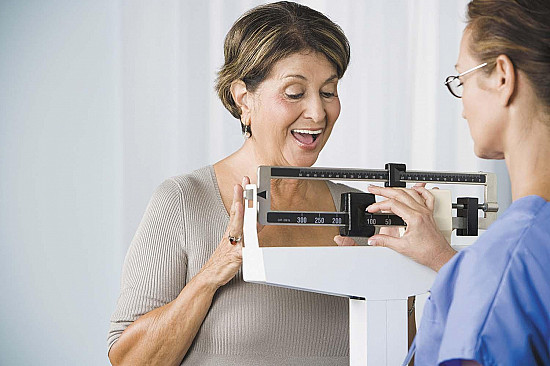Navigating "male menopause"
Declining hormone levels can also affect men.
- Reviewed by Howard E. LeWine, MD, Chief Medical Editor, Harvard Health Publishing; Editorial Advisory Board Member, Harvard Health Publishing

During mid-life or later, men often experience a lower energy level, sour mood, and sex drive decline. Sometimes these changes are called "male menopause." However, the label "male menopause" is a misnomer, according to Dr. Shalender Bhasin, professor of medicine, Harvard Medical School, and endocrinologist with Brigham and Women's Hospital.
Unlike men, women make a medical transition to menopause. This is the time in a woman's life when her level of estrogen (the primary female sex hormone) falls dramatically, usually between ages 45 and 55.
But for men, the decline in men's dominant sex hormone, testosterone, is more gradual and occurs slowly over many years. Levels drop about 1.6% per year beginning in a man's mid-30s. About 10% to 15% of men ages 60 and older have low testosterone levels, and that percentage rises further as men get older.
Different symptoms
Unlike women who experience very low estrogen levels at menopause, a man's testosterone level may never fall below the normal range. "The trajectory of age-related decline in testosterone level in men is influenced greatly by weight gain, lifestyle factors, and chronic diseases," says Dr. Bhasin. Also, the symptoms of testosterone loss can be nonspecific and tend to overlap with those of aging. Some men with a low testosterone level might never go through "male menopause-like" symptoms.
Some middle-aged and older men also can experience a more sudden and greater drop in testosterone and develop testosterone deficiency. This usually stems from damage to the testes or the part of the brain that regulates hormones. The damage could come from an injury, infection, radiation treatment, androgen deprivation therapy (for treating prostate cancer), or chemotherapy. Other common causes of testosterone deficiency include chronic illness, obesity, stress, prior long-term anabolic steroid use, and use of opioid medications. "In some of these situations, the underlying cause of testosterone deficiency, such as obesity, medication use, or a disease, may be temporary and should be addressed," says Dr. Bhasin.
Boosting low testosterone
There are ways to increase low testosterone levels if they are causing bothersome symptoms and affecting quality of life. How low is too low? Doctors define a normal blood level of total testosterone between 275 to about 900 nanograms per deciliter (ng/dL). Testosterone levels below 275 ng/dL are generally considered low although this can vary among laboratories. Testosterone level is best measured by having a blood test done between 7 a.m. and 10 a.m. after an overnight fast. If the result is low, doctors often recommend repeating the test. If your levels are consistently below 275 to 300 ng/dL, "your doctor will likely determine if any symptoms attributed to low testosterone might be caused by other conditions," says Dr. Bhasin. "Even if your low level is the main issue, you might be able to boost it with certain lifestyle interventions." For example:
Weight loss. Excess body fat, particularly around the abdomen, can contribute to lower testosterone.
Exercise. Research has found that a combination of high-intensity interval training and weight lifting can boost testosterone and improve overall health.
Sleep. Most testosterone release occurs during sleep, particularly while dreaming (known as the rapid eye movement stage). Aim for seven to nine hours of good-quality sleep per night. Sleep apnea, a condition in which you stop breathing for short periods while asleep, also can lower testosterone levels.
Trying TRT
If the diagnosis of low testosterone has been confirmed by appropriate testing and lifestyle changes don't correct it, testosterone replacement therapy (TRT) may be appropriate. Testosterone is given as a daily gel, cream, or patch applied to the skin, usually on the shoulder or thigh. It also can be taken as a daily pill or as an injection every week or two. While no single treatment offers a significant advantage, injections work most quickly.
Most men feel improvement in symptoms within four to six weeks, although changes in muscle and fat mass may take from three to six months.
Your doctor will evaluate your symptoms and testosterone levels after you've been on TRT for about three months. Depending on your testosterone levels and your response to TRT, the dosage may be adjusted. "You need to stay on TRT for it to be effective," says Dr. Bhasin. "Once you stop, your levels will decrease to their previous levels."
A look at side effects
Men need to weigh the benefits versus the risks when considering TRT. Some men experience side effects, such as acne, breast tenderness, swelling in the ankles or feet, and an increase in red blood cell numbers. TRT also can increase the risk of blood clots.
In the past, the two biggest areas of concern with TRT were the risk of heart attacks and stroke and the risk of prostate enlargement and prostate cancer. But the TRAVERSE trial, a study published July 13, 2023, in The New England Journal of Medicine shed new light on this connection.
Here, researchers recruited about 5,200 men (average age 63) with previous cardiovascular disease or multiple risk factors for it, as well as low testosterone levels (between 100 and 300 ng/dL). Half the men were randomly assigned to use testosterone gel daily for up to five years (average 21 months); the others used a placebo. The researchers found that both groups had similar rates of heart attacks and strokes, suggesting TRT did not increase risk.
Another concern is TRT's impact on prostate cancer. Testosterone can stimulate the growth of prostate cancer cells, which is why hormone therapy to lower testosterone levels is a common treatment for men with prostate cancer.
For this reason, doctors are leery of prescribing TRT to men at high risk for prostate cancer or those undergoing treatment. However, the TRAVERSE study found that TRT did not increase the incidence of prostate cancer. (While these results are encouraging, more research is needed.)
Keep in mind that TRT is not an anti-aging drug, despite what advertising might suggest. "For some middle-aged and older men, raising low testosterone levels can improve their sexual function, energy, muscle mass, and low mood," says Dr. Bhasin. "But TRT won't suddenly turn back the clock. A healthy lifestyle, regular exercise, and a positive outlook are the keys to a healthy life."
Image: © Creative Credit/Getty Images
About the Author

Matthew Solan, Former Executive Editor, Harvard Men's Health Watch
About the Reviewer

Howard E. LeWine, MD, Chief Medical Editor, Harvard Health Publishing; Editorial Advisory Board Member, Harvard Health Publishing
Disclaimer:
As a service to our readers, Harvard Health Publishing provides access to our library of archived content. Please note the date of last review or update on all articles.
No content on this site, regardless of date, should ever be used as a substitute for direct medical advice from your doctor or other qualified clinician.
















